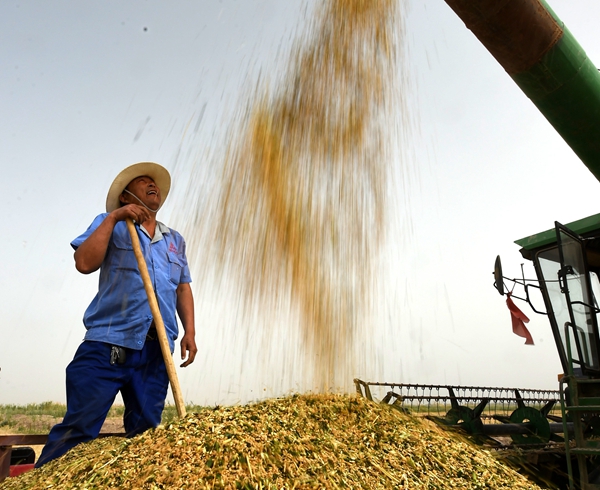 |
|
Members of the 1st Division of the Xinjiang Production and Construction Corps harvest wheat.[WANG ZHIQING/XINHUA] |
A social role
In addition to knowing how to run a farm, as an official in an organization that has its origins in the army and maintains a military-style name and structure, Shi also undertakes routine militia training.
When the order to assemble arrives, he has just 30 minutes to report for duty. "Our tasks mostly involve assisting police officers and armed police units during emergencies, such as natural disasters and terrorist attacks," he said.
An increasing number of terrorist attacks have happened in Xinjiang in recent years as religious extremism has penetrated deep into the region, which is home for more than half of China's Muslim population.
During a visit to Xinjiang in April last year, President Xi Jinping said the Bingtuan's role in Xinjiang should be reinforced, not weakened, and he urged the organization to become a force for stability and to set a good example for the integration of Xinjiang's numerous ethnic groups.
Wu Gang, 51, oversees five emergency militia units at the Fangcaohu Plantation. The 1,920 members of the units all work on the plantation, which has a population of more than 30,000. "Besides routine training, they are required to take part in 15 to 30 days' intensive training, including weapons' training, every year," he said.
In July 2008, more than 800 Bingtuan members from Fangcaohu were dispatched to Urumqi, three hours away by road, to help maintain social stability in the wake of a riot that claimed the lives of 197 people.
"We are always ready and well prepared. Bingtuan people will never forget their role as soldiers when Xinjiang needs us," Wu said.
Contact the writers at edzhang@chinadaily.com.cn and cuijia@chinadaily.com.cn
Related Stories